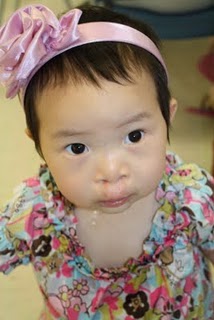Sending a small gift and/or photobook to a child before he or she comes home has become nearly universal. It has also become quite common for parents to use an in-country service to send additional gifts.
But caution is needed.
And no, I’m not talking about the legalities of sending gifts. That’s a whole topic in itself. The caution hits much closer to home–our child’s heart.
It’s exciting to pick out gifts for our child, when what we really want is to gift them with our presence–and a plane ticket home to forever. A photo album is incredibly important to help them begin to transition and prepare for adoption. A gift can give them a sense of belonging and love. Parents send small stuffed animals, toys, candy, hair clips, and other cool stuff–whatever they can fit in a manila envelope (the gift size most agencies allow–at least when adopting an older child).
But a gift can also bring pain.
How?
Unfortunately, I’ve learned it through my own children’s experiences. And I’ve also learned through multiple other families experiences which is what this post is all about.
Yes, a gift can make a child feel loved and special. It can be exciting for him or her to finally have a gift from someone–someone who LOVES them. It might be the first gift he or she has ever received. But, here are some questions to consider:
- Will the gift cause jealousy amongst the other children in the orphanage or foster family? Will this jealousy manifest itself in harm to our child–not just at the time the gift is given, but later?
- Even if it doesn’t cause jealousy, will it cause emotional pain for the other children who may never get a family of their own–let alone a special gift?
- Will the gifts suddenly disappear in the night? (Remember, there are multiple children in orphanages, sometimes older teens, multiple caregivers/foster parents living hand-to-mouth, and the blackmarket will pay enough on many small gifts to feed a family for a week.)
- If the gift “disappears” how will my child feel?
- Will the gift make my child feel guilty? Sad? Many children give their gifts away, because they feel sad for the other children without a family. Or they leave the gifts with their foster families, because they know they have so little. And yet, our child feels conflicted, because they really did want to keep their gifts.
- How will our child feel if they have to leave the gifts behind on adoption day?
- How will our child feel if they never receive a gift that we sent? How will we feel? Anger? Resentment?


